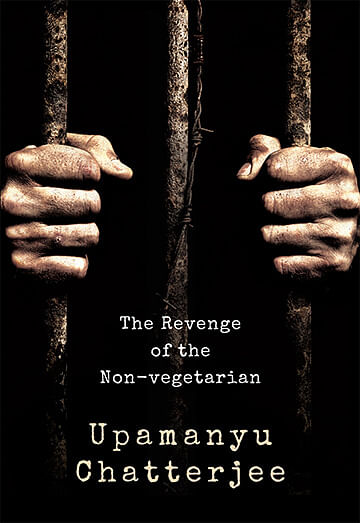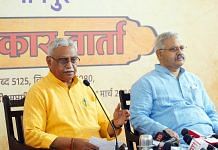
The contrast is obvious and the impact ruthless in his new novella ‘Revenge Of The Non-Vegetarian’.
One thing has become abundantly clear of late, what you eat can get you killed. As such, Upamanyu Chatterjee’s ‘The Revenge of the Non-Vegetarian’ serves up a tale that has become depressingly familiar in India of the last few years, sans the polarising Hindu-Muslim narrative. Perhaps that is why Chatterjee chooses 1949 as the year of the gruesome murder that is at the heart of the book.
Of the English, August fame, we encounter Madhusudhan Sen in the heyday of his employment as a civil servant. A true blood Bengali, he wants his bacon and beef for breakfast. But he lives in the holy vicinity of a temple where all non-vegetarian food is banned. There can be no better idea than to ask his Muslim mamlatdar (a junior in his division), Nadeem Dalvi, to arrange it for him.
All goes well until the mamlatdar’s servant, irked by the family’s voracious consumption of meat that he is repeatedly denied, takes an axe to all of them. Chatterjee turns the lynching narrative into one of cold-blooded murder. The contrast is obvious and the impact ruthless. He deliberately depoliticises the issue in order to demonstrate its absurdity.
Told in the sardonic tone that is Chatterjee’s signature, the reader lives their deaths. Food habits have always been political. In a seemingly innocuous manner caste, class, region and religion influence them. But for Chatterjee, it isn’t about Hindu-Muslim, or he ate my holy cow, it’s just about meat and desire. It is about rage born out of deprivation, it is about revenge.
One of the most interesting things Chatterjee does is take us inside the prison. The ill-treatment of inmates, the abuse of power, though not central to the plot leaves an impression.
In less than 150 pages, Chatterjee also manages a satire on the judicial process of death row in India. There is a Kafkaesque quality to the bureaucratic process in the way mercy pleas proceed — it is the same letter that all prisoners send, and the endless time it takes for a death sentence to be carried out.
But the revenge of the non-vegetarian doesn’t end with the murder of the Dalvi family. It is Sen’s revenge that takes centre stage. Sen, who much to the surprise of the reader, swears to turn vegetarian till the convict is brought to justice. He also shuts down the abattoir because he is disgusted by the way animals are killed in there.
Sen will send the murderer to the gallows despite the President revoking his death sentence. Almost 20 years after the murder of the Dalvi’s, as the servant hangs, Sen finally goes out for his non-vegetarian meal.
Chatterjee wants the reader to feel morally conflicted. Whose revenge is worse? There are no clear answers.
In a short fast-paced novella, Chatterjee manages it all – a captivating murder mystery, dark humour and a cynical commentary on society (let’s not forget the way the Dalvis treat the widowed sister).
‘The Revenge of the Non-Vegetarian’ by Upamanyu Chatterjee has been published by Speaking Tiger Publishing Pvt. Ltd.






COMMENTS